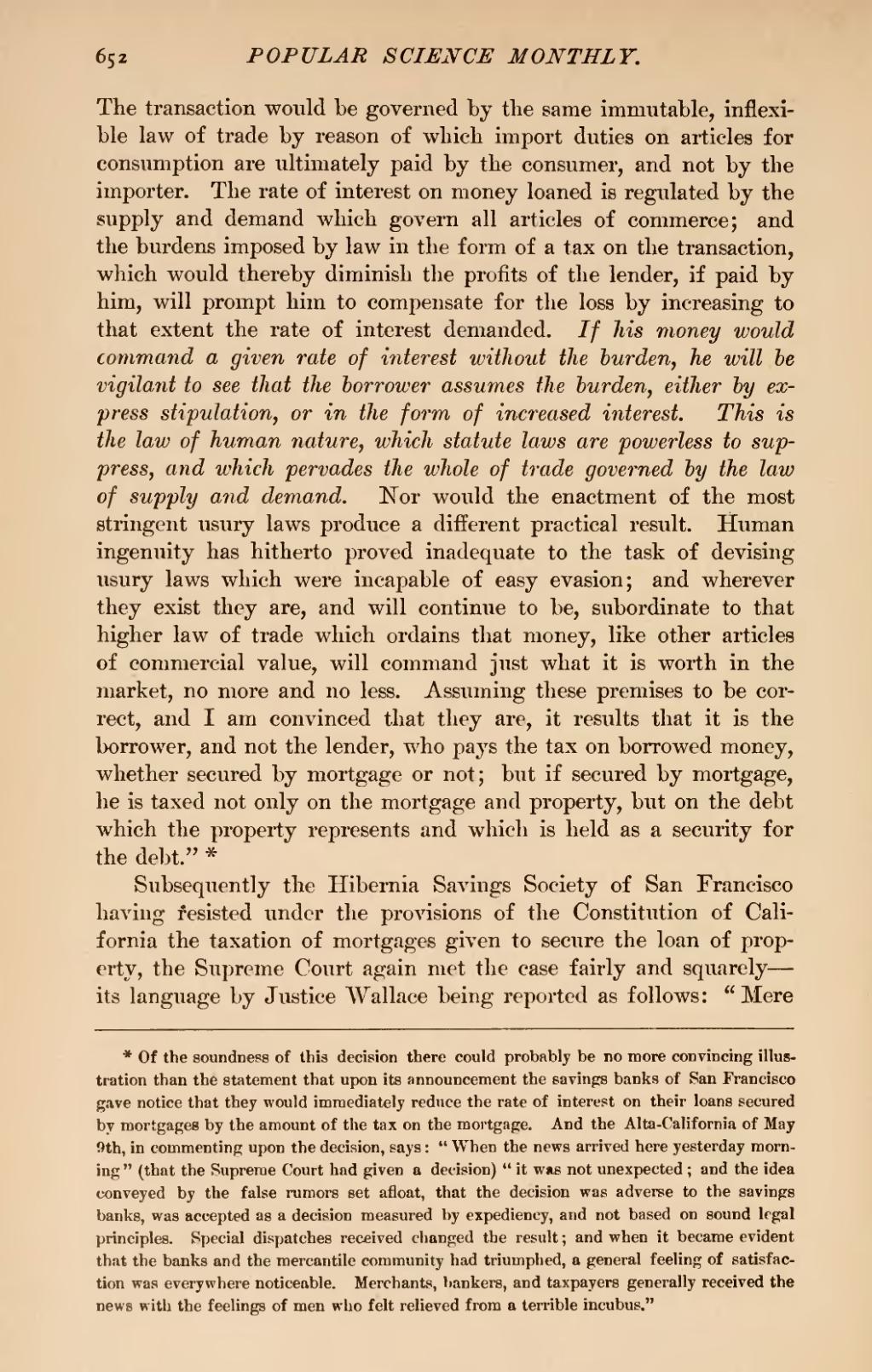The transaction would be governed by the same immutable, inflexible law of trade by reason of which import duties on articles for consumption are ultimately paid by the consumer, and not by the importer. The rate of interest on money loaned is regulated by the supply and demand which govern all articles of commerce; and the burdens imposed by law in the form of a tax on the transaction, which would thereby diminish the profits of the lender, if paid by him, will prompt him to compensate for the loss by increasing to that extent the rate of interest demanded. If his money would command a given rate of interest without the burden, he will be vigilant to see that the borrower assumes the burden, either by express stipulation, or in the form of increased interest. This is the law of human nature, which statute laws are powerless to suppress, and which pervades the whole of trade governed by the law of supply and demand. Nor would the enactment of the most stringent usury laws produce a different practical result. Human ingenuity has hitherto proved inadequate to the task of devising usury laws which were incapable of easy evasion; and wherever they exist they are, and will continue to be, subordinate to that higher law of trade which ordains that money, like other articles of commercial value, will command just what it is worth in the market, no more and no less. Assuming these premises to be correct, and I am convinced that they are, it results that it is the borrower, and not the lender, who pays the tax on borrowed money, whether secured by mortgage or not; but if secured by mortgage, he is taxed not only on the mortgage and property, but on the debt which the property represents and which is held as a security for the debt."[1]
Subsequently the Hibernia Savings Society of San Francisco having resisted under the provisions of the Constitution of California the taxation of mortgages given to secure the loan of property, the Supreme Court again met the case fairly and squarely—its language by Justice Wallace being reported as follows: "Mere
- ↑ Of the soundness of this decision there could probably be no more convincing illustration than the statement that upon its announcement the savings banks of San Francisco gave notice that they would immediately reduce the rate of interest on their loans secured by mortgages by the amount of the tax on the mortgage. And the Alta-California of May 9th, in commenting upon the decision, says: "When the news arrived here yesterday morning" (that the Supreme Court had given a decision) "it was not unexpected; and the idea conveyed by the false rumors set afloat, that the decision was adverse to the savings banks, was accepted as a decision measured by expediency, and not based on sound legal principles. Special dispatches received changed the result; and when it became evident that the banks and the mercantile community had triumphed, a general feeling of satisfaction was everywhere noticeable. Merchants, bankers, and taxpayers generally received the news with the feelings of men who felt relieved from a terrible incubus."
